Unsurprisingly, people who are in a narcissistic relationship tend to feel overly attached to their partner, despite all the abuse they go through. This is also referred to as Trauma Bonding. However, how are traumatic bonding and Stockholm Syndrome similar? What is traumatic bonding, and how to overcome traumatic bonding?
Related: 5 Things A Narcissist Does To Keep You From Leaving Them
Do Traumatic Bonding And Stockholm Syndrome Feel Similar?
Leaving an abusive relationship is never easy. On average, it takes a person around 7 times to leave an abusive partner. Abusive relationships are complex and traumatic.
The cycle of abuse is pervasive and difficult to break free from, let alone get over. We become addicted to a relationship and a person who is no good for us. It was like a drug for me. The only person who can make you feel good again is the person who is hurting you. It’s no wonder leaving is so hard.
But the beginning of the end of my relationship happened quite a while before I finally left him.
The only way to free ourselves from an abusive relationship is to take all the energy we are wasting on them and focus it back on ourselves. To take our focus off trying to fix them, change them. Change us instead.
As I worked on my self-esteem I started to realize, I deserved better. This relationship wasn’t good enough for me. I had to leave. I had to plan to do so safely as this is the time when 75% of victims are killed or injured by their partners. Only then would I be able to heal.
Leaving an abusive relationship is one of the hardest things I’ve ever done in my life. I left and went back to my ex many, many times, even after he’d nearly killed me. I’d have steely resolve, only for it to melt when he was loving again.
Many other victims of domestic violence I’ve talked to say the same. That they minimize what’s happened. That once the bruises fade, it doesn’t seem so horrible after all. They felt perhaps they had overreacted. Guilty of abandoning them when they need me. It takes a huge amount of courage and strength to leave an abusive relationship.
Victims of abusive relationships progress through a series of five defined stages before finally breaking free from an abusive relationship*.
The first stages are when we are still in the relationship. I relate to every one of these stages.
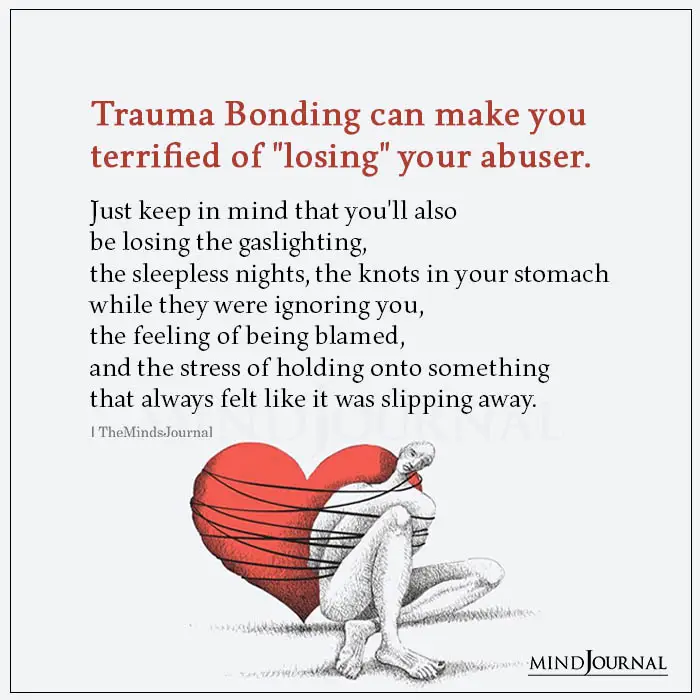
6 Stages Of Leaving A Narcissistic Relationship
1) Denial
This is where we deny or minimize the abuse. Whilst everyone around us can see what is going on, we either lack awareness of how bad it is, deny it or minimize its influence on us.
We may feel trapped and hopeless to improve things or change them. We make no attempts to take action to make our life safer and less threatening. We don’t see our partner or abusive person for who they really are.
We prefer to recall the person we first met, who love-bombed us and made us feel so special. Or the good times, the “honeymoon stage” after abuse, when they shower us with gifts and affection.
Related: Why Is It So Hard to Leave the Narcissist in Your Life?
We long to believe their promises that it will never happen again. So, delude ourselves into thinking that if we change to please them and not provoke their anger, the abuse will stop.
If others question bruises or any evidence of abuse we’ll make up excuses. I was good at doing that. Anything but blaming him. I was too scared of losing him. Besides, it’s more insidious than that.
When we’ve been in an abusive relationship for some time, a form of traumatic bonding takes place. It’s a bit like Stockholm Syndrome.
Named after the hostages of a bank robber in Stockholm started to feel sorry for and side with their captor.
When we first meet our abusive partner the emotional connection is intense. As the relationship progresses they start to isolate us from family and friends. Anyone who might give us a healthy reality check on what is happening. We may not be aware of it, but an unhealthy attachment to them starts to form.
We become dependent on the person who is hurting us. (trauma bond)
We need them to make us feel good after abuse. We numb our emotions. Our gut instincts no longer work and this only accentuates our denial. We believe our own rationalizations that the abuse isn’t as bad as we think it is.
Their manipulative tactics are also designed to make us accept responsibility for their behavior. We internalize this blame and rationalize that: If I hadn’t done this or that, they wouldn’t have got so angry. Had I not said this or that, the abuse wouldn’t have happened.
We feel helpless. Trapped. I did. And I also kept how bad things were hidden from others. I didn’t reach out for help.
Until you can admit there is a problem, you won’t take steps to change it. Whilst you are convinced that you can affect them to change, simply by changing what you do and say. Whilst you keep changing your behavior and taking responsibility for theirs, you’re hanging onto the hope things will one day be okay.
So, you stay in the relationship waiting and hoping for it to improve. But the emotional and/or physical abuse only gets worse.
2) Admitting reality
This is when you start to admit to yourself the reality of what you have been denying and minimizing for so long.
Admitting that my life was out of control was one of the hardest steps I had to take. For a long time, although I was able to acknowledge the severity of what I was experiencing, I was still paralyzed, unable to take steps to change it.
This is a time when your feelings shift back and forth from realizing you are a victim of domestic abuse to denial of it and back again. You love their good side, but you hate the bad. You are on an emotional roller-coaster. It’s a very confusing time.
Related: How To Leave A Narcissist: 6 Powerful Hacks
The thought of leaving terrifies you. Even though they’re hurting you, you don’t want to lose the person you love. I still loved my ex. I had a son with him now and was desperate for us to be a family. I just wished the abuse would go away. I’d rather wait and hope he’d change.
“You can’t force someone to respect you. But you can refuse to be disrespected.”
Others might fear harassment or stalking if they leave an abusive partner. Or being left financially destitute, unable to get a job. Just the overwhelming fear of starting over again can be crippling, especially if it involves moving away and going into hiding, say in a domestic violence shelter.
At this point the fears of leaving outweigh the risks of staying. But there’s a huge gap between the often-exaggerated memories of the good times and the painful reality of how toxic the relationship has become.
Even after my ex almost killed me by strangling me, I still convinced myself things would one day be okay. But gradually the balance tipped the other way. I moved into the next stage.
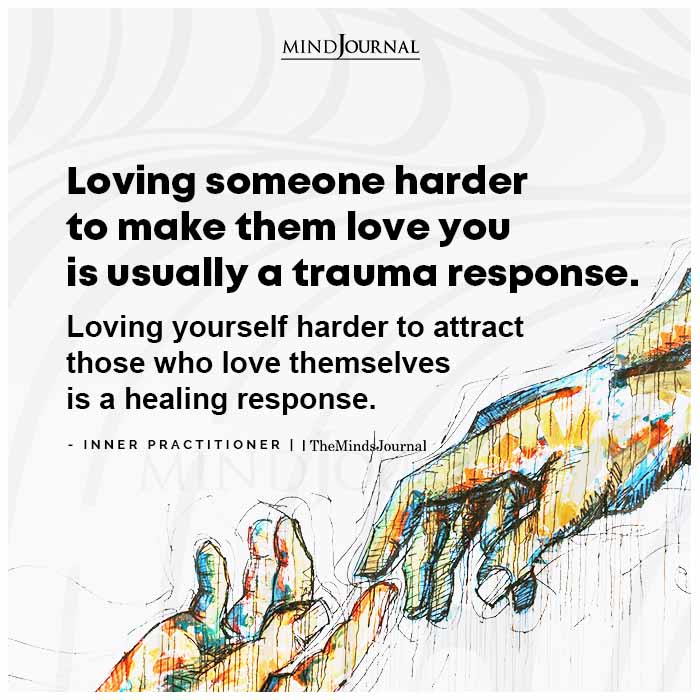
3) Preparing to leave
When we realize that sustaining the status quo means we put ourselves and our children in danger. We become aware we have no other choice but to leave. If not, the abuse will only escalate further. At worst, we risk losing our life.
First, I had to admit my life was out of control. Then I had to see him for who he really was. Not the person I had projected onto him. Not the one I was waiting for and hoping he’d change to become.
By now I’d learned that I had to accept the things I couldn’t change. Which was him? I had to find the courage to change what I could. Which was me? I had to let go of trying to fix him, save him, rescue him. I had to focus on myself.
“I’m at a point in my life where I just want my family happy, my health good, my mind right, and no drama.” – Karen Salmansohn
I remember the moment so clearly as if it was yesterday….. when it dawned on me that meant accepting him for who he was right now. Not who I hoped it might become one day in the future.
What if he never changed into this fantasy person I had in my head? I knew I had to leave. My safety and that of my child finally outweighed my denial. I had clarity for the first time.
Related: How To Get A Narcissist To Leave You Alone: 8 Smart Ways
4) Leaving
This is an enormous step to take. It’s the culmination of years of having to challenge your fears over your future, and your doubts that things are as bad as they seem. Facing uncertainty over whether you are making the right decision. Questioning what will happen, to you or to them, if you take this step. It is a very anxious time.
Often it takes another horrendous incident, following a lull in the abuse (and the promise that it will never happen again) that finally the straw that breaks the camel’s back.
“Narcissists rewrite history to escape accountability. You are not crazy.”
I can’t recall exactly what triggered the moment I finally walked free. But it was at night when I knew he wouldn’t be home for a while. I packed my baby and the bare essentials into my car and left.
You never realize your strength, survival skills, and ability to cope under such duress before having to walk away from an abusive relationship.
5) Staying strong
This is one of the hardest stages. Where you need to stay strong. To maintain the gains you’ve made leaving behind a toxic relationship that was filled with injury, fears, and pain.
That’s easier said than done. You think that when you leave an abusive relationship that’s it, it’s over, it’s the end. But it’s not. It’s just the beginning. In some ways, it can be the most painful part.
Related: 5 Good Reasons To Leave a Narcissist
6) Termination stage
This is the point – if you’re lucky enough to get there – where you have finally terminated an abusive relationship, mourned its loss, and started life anew, safely and securely.
I got there. It was one of the toughest journeys I have taken in my life. I relapsed along the way.
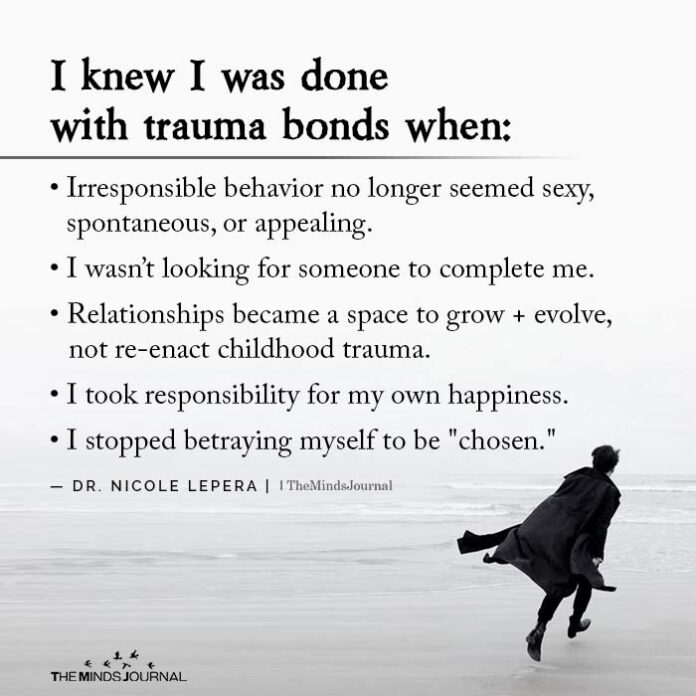
And it took many more years to understand why I was attracted to the type of person who would hurt me like that, why I stayed when others wouldn’t have and to build my self-esteem to such an extent that I can maintain healthy boundaries in all aspects of my life.
But it was also the most empowering one. I not only found self-confidence and self-esteem I never had. I went on to find long-term healthy love with the man I am married to now. The lessons I learned from this relationship have benefited me in my relationships with friends, work colleagues, and my career.
But what I am most proud of is that I have broken the destructive and addictive cycle, and not passed the negative patterns down to my sons. There is life after abuse. And it can be a positive one.
No matter how much you love that person, being in a narcissistic relationship is just not worth the pain.
Initially, it might be difficult for you to imagine your life without them, but always look at the bigger picture and compare the pros and cons. You will see for yourself that the cons will always outweigh the pros.
Related: How To Leave A Narcissist Or Abuser
Instead of investing your energy in a doomed relationship like this, invest in yourself and your happiness. You will see your life going in a positive direction in no time.
Written by Vivian McGrath
Originally appeared on Vivian McGrath
Frequently Asked Questions (FAQs)
What is the difference between traumatic bonding and Stockholm syndrome?
Traumatic bonding and Stockholm syndrome are not really the same thing. Stockholm syndrome is mostly seen in victims, who know that their lives are in danger. Trauma bonding on the other hand happens as a result of continuous abuse and manipulation, over a long period of time.
What are the similarities between traumatic bonding and Stockholm syndrome?
Stockholm syndrome is a type of coping mechanism employed by victims in hostage situations, where they grow positive feelings for their captors, despite being in a dangerous situation. Victims of abuse tend to feel the same as far as traumatic bonding is concerned.
Can a relationship cause Stockholm Syndrome?
Yes, Stockholm syndrome can be found in interpersonal relationships too, including romantic ones where victims tend to foster positive feelings for their abusers.
Can you have Stockholm syndrome from an ex?
Yes, you can. If you feel any sort of loyalty, empathy, and understanding for your abusive ex and try to rationalize and justify their abuse, then it can be a sign that you are suffering from Stockholm syndrome.
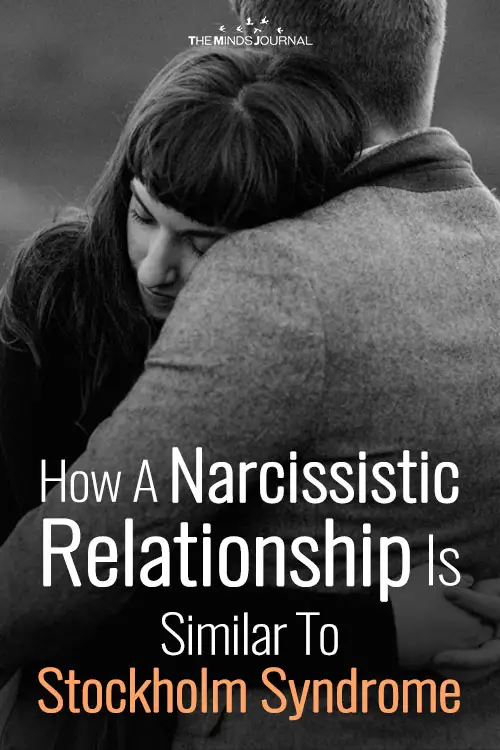
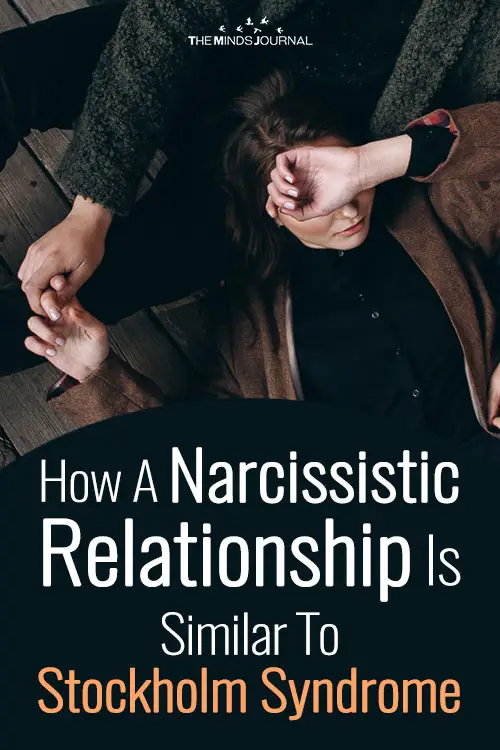
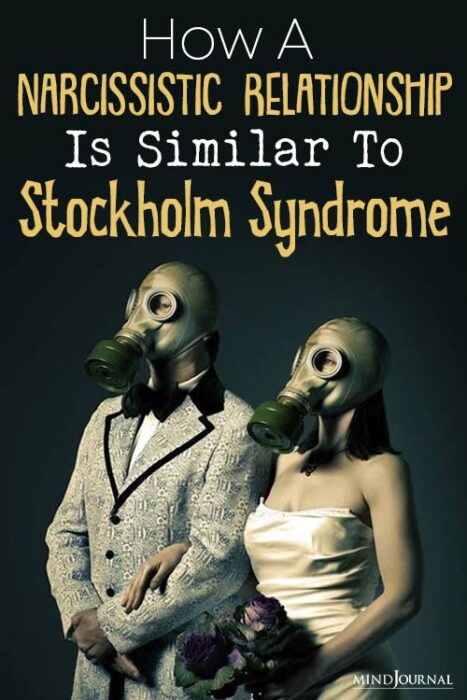
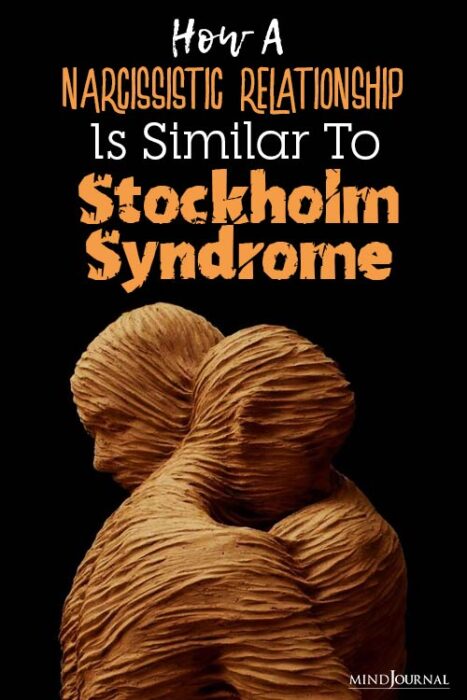
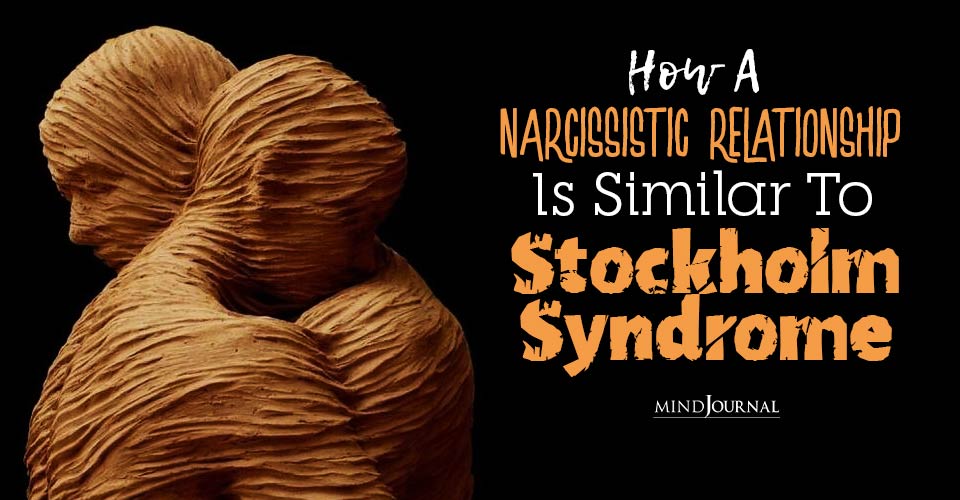

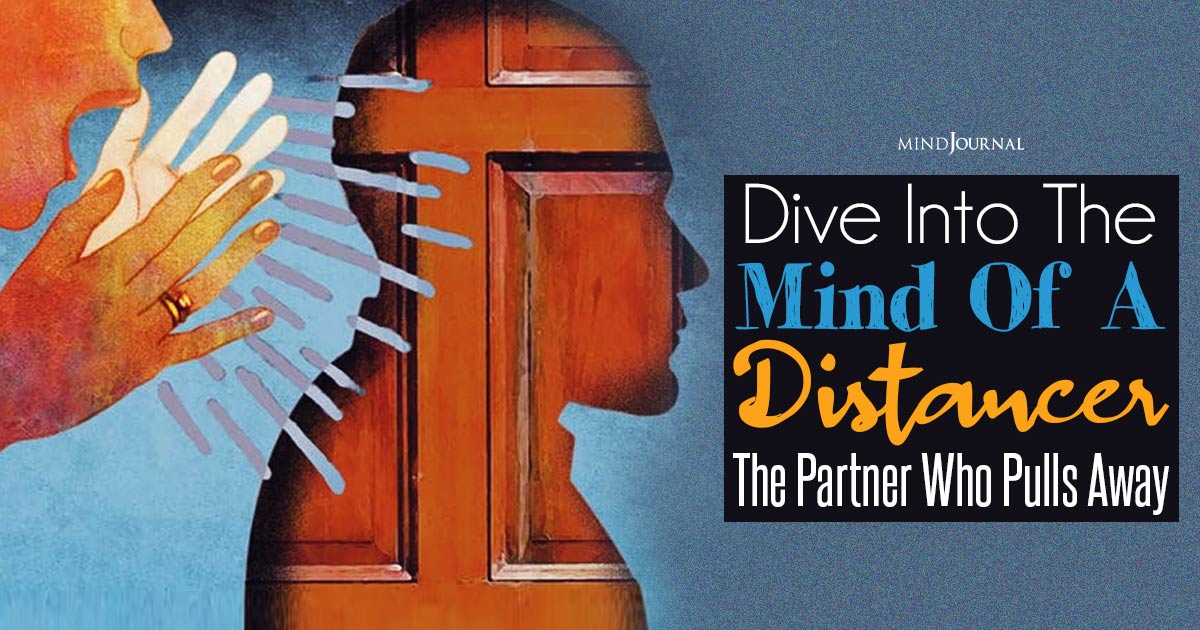


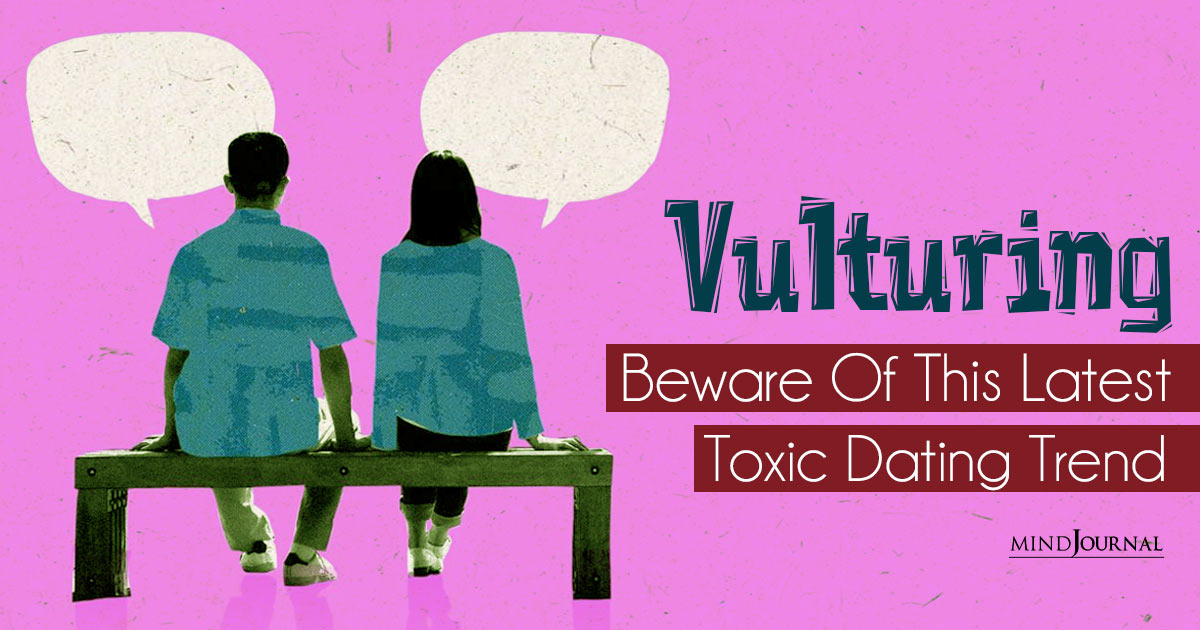
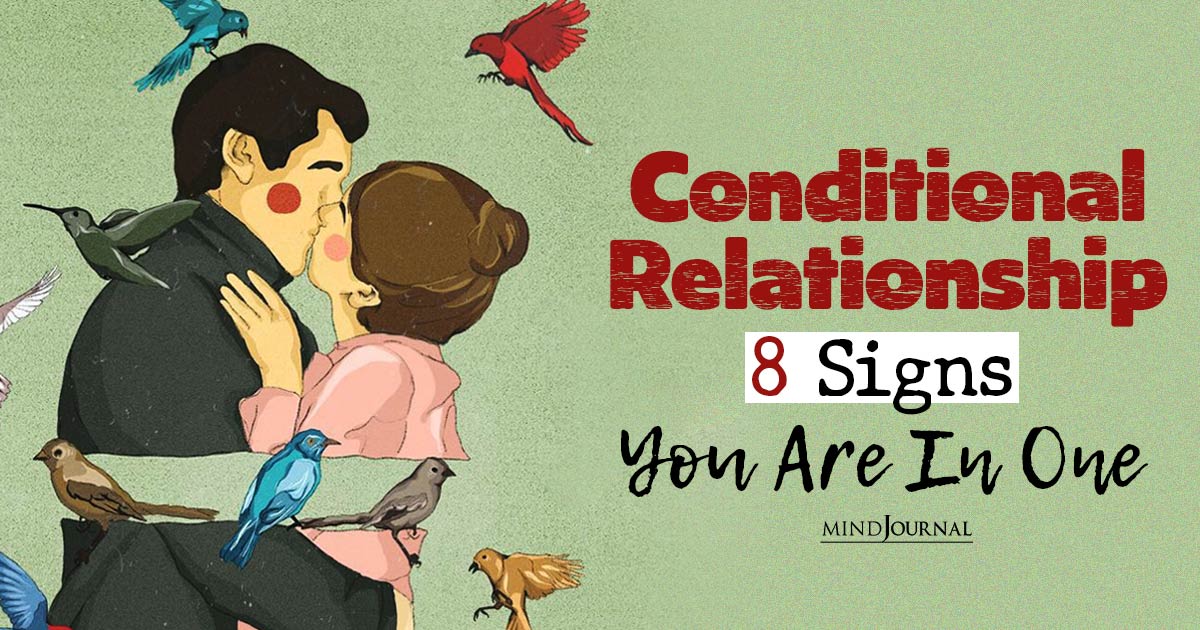

Leave a Reply
You must be logged in to post a comment.